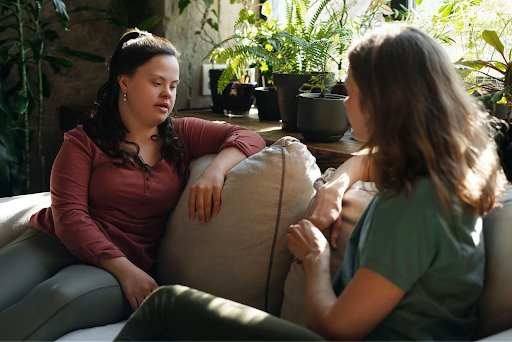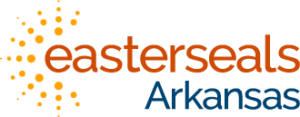
Even without them saying it, people with developmental disabilities dream of living independently and according to their terms. But with their unique needs, doing so requires careful planning and execution.
Easterseals Arkansas recognizes these challenges and stands at the forefront of advocating for and facilitating independent lifestyles. And with that, their Roommate Housing Program opens doors to a kind of freedom that adults with developmental disabilities can enjoy.
The program prioritizes matching roommates based on personality, interests, and living preferences. This meticulous approach ensures a harmonious and compatible living situation.
Ultimately, Easterseals’ goal is to facilitate a smooth transition for these adults to independent living. Their innovative approach to roommate housing proves their commitment to empowering individuals with developmental disabilities.
Key Pillars of Easterseals’ Roommate Housing Program
Easterseals Arkansas’ Roommate Housing program offers a comprehensive and thoughtfully designed living solution for adults with developmental disabilities. Here’s an overview of its key features:
1. Roommate Matching System
The program uses a detailed questionnaire with 48 questions to pair potential roommates. This process resembles how first-year college students are matched for dorm living.
It covers various aspects such as personality, lifestyle preferences, conflict resolution strategies, and preferences regarding pets and visitors.
Before finalizing a living arrangement, potential roommates and their families engage in social outings to ensure compatibility. This approach has shown success in fostering close friendships and aiding transitions to community living.
2. Customized Housing Solutions
In collaboration with national and local housing partners, Easterseals secures accessible housing within the preferred community settings of individuals.
Homes typically house two to four roommates, helping residents share expenses, technology, and staffing resources. Each roommate signs their lease and takes responsibility for their share of rent, utilities, and other household expenses.
Housing adaptations and modifications are made based on individual accessibility and safety requirements.
3. Smart-Home and Enabling Technology
The homes are equipped with advanced smart-home technologies tailored to each resident’s needs, such as:
- Smart Locks: These allow for keyless entry and can be remotely controlled.
- Smart Thermostats: These can adjust the home’s temperature automatically for comfort and energy efficiency.
- Medication Dispensers: Automated dispensers can remind residents to take their medications at the correct times.
- Phone Apps: Apps can provide daily reminders for various tasks and appointments to help residents stay organized.
Additionally, these homes feature remote monitoring technologies to enhance safety and support independent living, including:
- Video Doorbells: Allow residents to see and speak with visitors without opening the door for an extra layer of security.
- Motion Sensors: These can alert caregivers or residents of movement in specific areas, functional for monitoring and safety.
- Stove Sensors: These can automatically turn off the stove if left unattended for too long, preventing potential accidents.
4. Efficient Staffing and Support Services
Residents receive support from direct support professionals tailored to the specific medical, physical, and personal care needs of each home. This includes regular visits from a Community Health Nurse for medication management and overall wellness.
Remote monitoring technology also allows for efficient monitoring of multiple homes. With this, emergency responses are always available when needed. It also reduces the need for overnight staff.
Application Process and Eligibility Criteria
Easterseals divides the Roommate Housing Process into four main phases:
Phase 1: Find a Roommate
The process begins with individuals, including those with developmental disabilities, completing a roommate matching survey to help identify compatible roommates. They attend social events to meet potential roommates, which helps determine compatibility.
Participants also identify financial resources available to them. Finally, they choose their roommates based on the interactions and survey results.
Phase 2: Develop a Plan
A Direct Support Manager (DSM) is assigned by Easterseals to each individual. The DSM schedules meetings with potential roommates to develop a more detailed plan.
A tentative plan addresses accessibility, technology, staffing, and transportation needs for the individuals. Participants actively complete personal monthly budgets to ensure financial viability.
Phase 3: Find a Home
Individuals identify their monthly rental price range and desired location. They then search for and tour various housing options, assessing each for accessibility and technology needs.
Easterseals then assists with hiring or assigning staff as needed for the housing situation.
Once housing is chosen, individuals sign the lease agreement.
Phase 4: Move In
The final phase involves finalizing details of accessibility, technology, staffing, and a transportation plan. A complete inventory of household needs is also taken.
To further support the residents, an Adopt-A-House group may be assigned.
Easterseals then submit any necessary plan revisions. Utilities are set up, and finally, the residents move into their new homes.
Navigating the Transition
For individuals and families considering roommate housing, the transition requires proactive work initially. But it is highly doable.
Tips for A Successful Roommate Housing Transition
Transitioning into roommate housing can be a significant step towards independence for adults with developmental disabilities. Here are some tips to ease the process:
- Assess readiness: Consider whether the individual is ready for roommate housing, as levels of independence can vary widely.
- Envision a future: Encourage the individual to think about their strengths, needs, and desires for their living situation.
- Practice essential skills: Start developing necessary social skills early, such as respecting personal space and asking permission before using others’ belongings.
Addressing Common Concerns and Anxieties
Moving into roommate housing can bring about concerns and anxieties. Here’s how to address them:
- Open Communication: Establish open lines of communication with your roommates right from the start. Regularly schedule times to discuss household responsibilities, share concerns, and celebrate successes together.
- Shared Activities: Find common interests and participate in activities together, whether it’s a weekly movie night or a cooking session. This helps create shared experiences and memories.
- Respect Boundaries: Understand and respect each other’s personal space and boundaries. Having a clear understanding of what is shared versus personal can prevent conflicts.
- Community Involvement: Engage in local events, volunteer opportunities, or clubs to connect with the community. This can also be a way to make new friends and build a support network outside the home.
- Mutual Support: Offer and seek support from roommates during challenging times. Whether offering a listening ear or helping with practical tasks, showing support strengthens bonds.
- Responsibility Sharing: Divide household chores and responsibilities fairly. This helps avoid resentment and ensures everyone contributes to the home’s upkeep.
Final Thoughts
For any individual with developmental disabilities, the path to independence is within reach. Roommate housing stands out as a beacon of hope, providing living space, a community, and the support needed to flourish.
If your loved one is ready to take this step toward independent living, Easterseals Arkansas’ Roommate Housing Program is prepared to welcome you.
To apply or learn more, visit our page for more detailed information.
Take this moment to embrace the opportunities that await your loved ones. Let them step into a future of independence and community connection.
